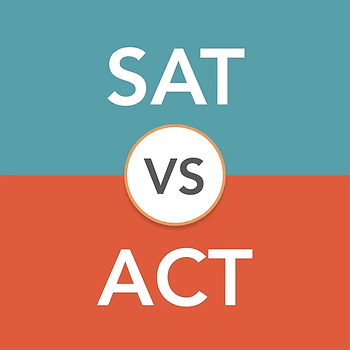SAT vs. ACT: Which One is Better for Your Student?
- Warren Buck
- Mar 20
- 2 min read
If your student is starting their college admissions journey, one of the first big questions you’ll face is: Should they take the SAT or the ACT? Both tests are widely accepted by colleges, but they have key differences that can make one a better fit depending on your child’s strengths and test-taking style. Let’s break it down!

Key Differences Between the SAT and ACT
While both tests assess college readiness, they differ in structure, timing, and content focus. Here’s a quick comparison:
Feature | SAT | ACT |
Length | 2 hours, 14 minutes (new digital format) | 2 hours, 55 minutes (without Writing) |
Math Focus | More algebra-heavy, allows calculator on all questions | More geometry/trig, faster-paced |
Science Section | No dedicated section (but data interpretation questions exist) | Has a dedicated Science section |
Reading Style | Longer, more analytical passages | Shorter, more direct passages |
Pacing | More time per question | Faster-paced, less time per question |
Scoring | 400–1600 scale | 1–36 scale |
Which Test is Better for Your Student?
The best test for your student depends on how they think and test. Here are some key factors to consider:
✅ The SAT is better if:
Your student is strong in algebra but struggles with geometry and trigonometry.
They do well with critical reading and analytical reasoning.
They prefer a slower-paced test with more time per question.
They like working through multi-step word problems in math.
✅ The ACT is better if:
Your student is good at time management and working quickly.
They prefer straightforward reading questions over analytical ones.
They’re comfortable with science and data interpretation.
They have a strong grasp of geometry and trigonometry.
Should Your Student Take Both?
Some students perform similarly on both tests, while others have a clear preference. If your student is undecided:
Take a free practice test for each and compare scores.
Consider where their strengths lie—do they thrive under time pressure or prefer more thinking time?
Focus study efforts on the test that aligns best with their abilities.
Final Thoughts
Neither test is “better”—the right choice depends on your student’s strengths, weaknesses, and testing style. Most colleges accept either, so picking the one where your student scores higher will maximize their admissions chances.
Next Steps: Take a practice test, analyze the results, and create a testing plan that works for your student’s strengths! Need more guidance? Reach out for expert test prep strategies.
_edited.png)
Comments